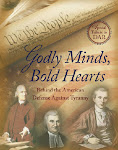Born in England to Pakistani immigrants, Sayeeda Warsi was elevated to the House of Lords in 2007 at age 36, making her the youngest peer in parliament at the time.
In 2010, Prime Minister David Cameron appointed her as minister without portfolio, and in 2012 was named minister of faith and communities.
Sayeeda Warsi calls persecution 'the biggest challenge we face'
The first Muslim to serve in Britain's cabinet said Friday that Western governments must protect Christians being forced out of the Middle East.
"Persecution, I believe, is the biggest challenge we face in this young century", said Sayeeda Warsi during a speech Friday at Georgetown University, in Washington, D.C. Warsi, as the Minister for Faith and Communities, is a senior minister of state in the UK Foreign and Commonwealth Office.
Christians in the Middle East, she said, are seen as "newcomers" in the region where they have lived since the dawn of Christianity, seen as "outsiders" in societies they have helped shape for centuries, and blamed for perceived Western offenses.
"A mass exodus is taking place, on a biblical scale", Warsi said. "In some places, there is real danger that Christianity will become extinct".
In her Georgetown speech, Warsi said leaders of all faiths and governments in the West can fight the "new sectarianism that is breaking out across continents" in four ways:
· Emphasizing the moments in history when people of one faith came to the aid of the people of a different faith.
· Insisting that "the presence of other faiths doesn’t come at the expense of your own".
· Promoting the link between religious freedom and economic health. "Persecution is bad for business", she said.
· Encouraging leaders of the major faiths to defend the others.
"Our response to this global crisis must not itself be sectarian", Warsi said. "It must not be a case of Christians defending Christians, Muslims defending Muslims, or indeed faith groups defending faith groups".
Earlier Friday, during a question-and-answer session at the Council on Foreign Relations, Warsi said the rise of sectarian violence has driven a wedge between the major religions, creating space for extremist elements.
"[T]he challenge appears to be that certain bits of the world want to talk about Islamophobia in the West and other bits of the world want to talk about freedom of expression and persecution of Christians, so it is very polarizing, and it's about trying to find that middle way," she told the audience at the Council on Foreign Relations event.
Part of the response to sectarian violence, she said, requires religious authorities to refute extremists when they point to their religion to justify persecution.
"[T]ake away from the extremists their moral high ground", she said ."Do not allow them the faith. And anything that allows them to take the faith as their mantle, I think, empowers them. And we've got to take that away from them."
*****************
©2013 World Watch Monitor
----------------------------------------------------------------------------------------------









































































No comments:
Post a Comment